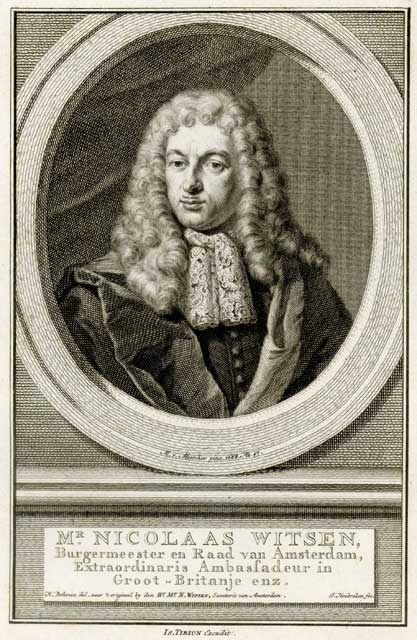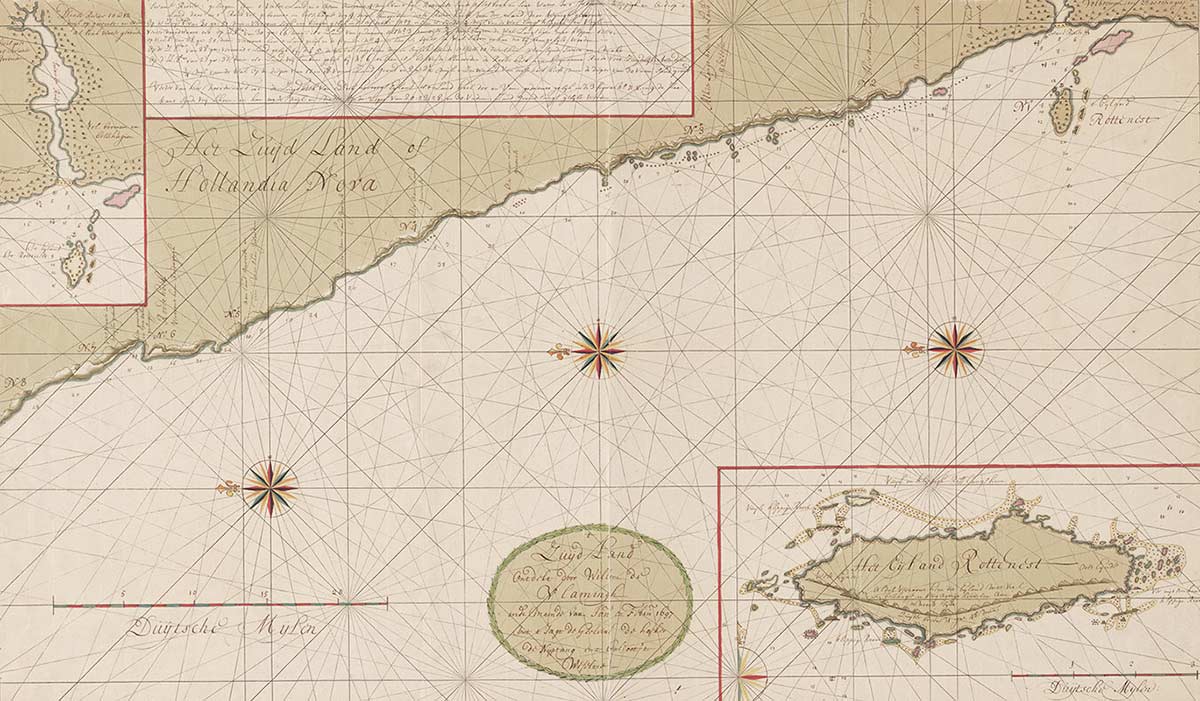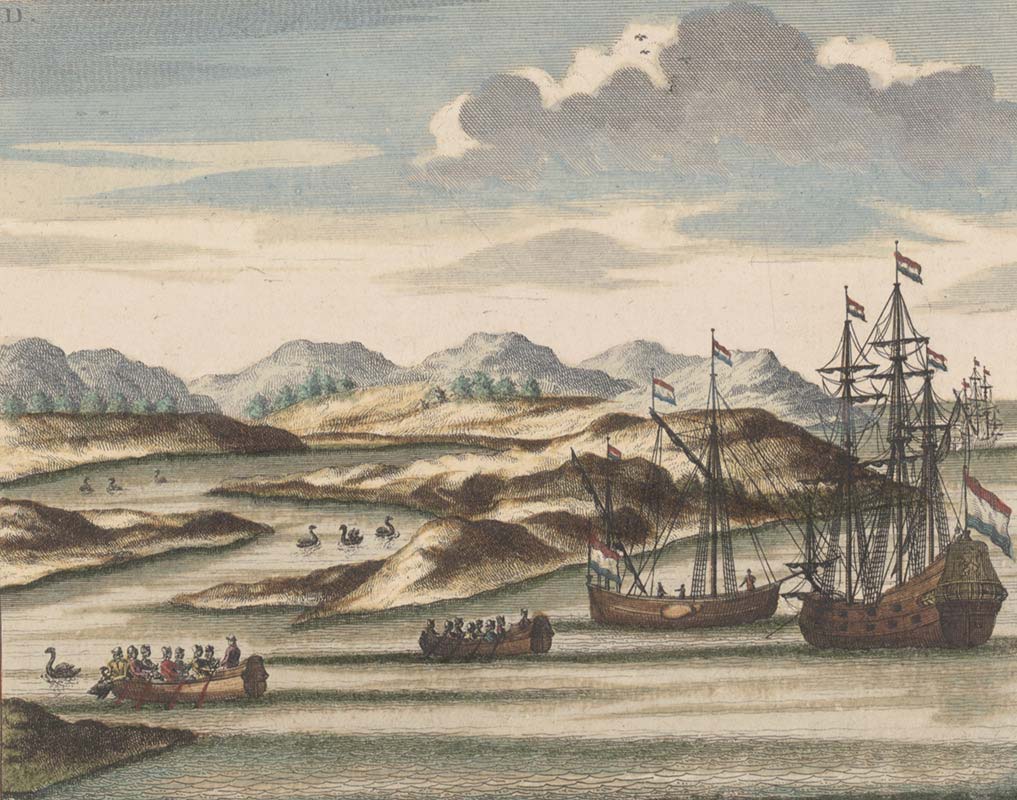Letter from Nicolaas Witsen to Martin Lister

Proceeding into the main section of the exhibition, the visitor encountered an item from the Royal Society's collection: a letter from Nicolaas Witsen to Dr Martin Lister, Fellow of the College of Physicians and the Royal Society, dated 3 October 1698. It bears the title, 'Some late observations of New Holland'.
Nicolaas (sometimes written as Nicholas or Nicolaes) Witsen was burgomaster of Amsterdam, a director of the Verenigde Oostindische Compagnie (VOC or Dutch East India Company) and a prominent and well-connected citizen of the Republic of Letters, an informal global network of scholars and collectors.
He possessed one of the most magnificent Kunstkammers (cabinets of curiosities) of the age and was also a Fellow of the Royal Society.
Witsen's father, Cornelis, had been the driving force behind the Tasman expeditions of 1642–44, and Nicolaas played a major role in commissioning Willem de Vlamingh's expedition of 1696–97 along the coast of Western Australia.
It was on this expedition that de Vlamingh discovered (and named) the Swan River and Rottnest Island, and replaced Dirk Hartog's plate at Shark Bay with the Vlamingh plate.
Witsen's letter gives a detailed description of the Western Australian coast, 'hitherto not sufficiently known':
On this Voyage nothing hath been discovered which can be any way serviceable to the Company. The Soil of this Country hath been found very barren, and as a Desart; no Fresh-water Rivers have been found, but some Salt-water Rivers, as also no Fourfooted Beasts, except one as great as a Dog, with long Ears, living in the Water as well as on the Land.
Black Swans, Parrots, and many Sea-Cows were found there; as also a Lake, whose Water seemed to be Red, because of the Redness of the Bottom of it: and round along the Shore there was some Salt. Our People had seen but Twelve of the Natives, all as black as Pitch, and stark naked, so terrified, that it was impossible to bring them to Conversation, or a Meeting: They lodge themselves as the Hottentots, in Pavilions of Small Branches of Trees. By Night our People saw Fires all over the Country; but when they drew near, the Natives were fled. The Coast is very low, but the Country far from the Sea is high.
Upon the Island near the coast have been seen Rats as great as Cats, in an innumerable Quantity; all which had a kind of Bag or Purse hanging from the Throat upon the Brest downwards. There were found many well-smelling Trees, and out of their Wood is to be drawn Oyl smelling as a Rose, but for the rest they were small and miserable Trees. There were also found some Birds nests of prodigious greatness, so that Six Men could not, by stretching out their Arms, encompass One of them; but the Fowls were not to be found.
There was great Store of Oysters, Lobsters, and Crabs; and also strange sorts of Fish. There were also Millions of Flies, very much troubling Men. They saw a great many Footsteps of Men and Children, but all of an ordinary bigness. The Coast is very foul and full of Rocks.
After Witsen's letter came a series of objects from the collections of the Royal Society and the National Museum of Australia related to James Cook's famous Pacific expedition of 1768–71, which set out to record the transit of Venus. These items revealed the active role the Society played in seeking royal support for the Endeavour voyage.
References
Philosophical Transactions, vol. 20, 1698, pp. 361–62.
You may also like
![Letter from Nicolaas Witsen to Dr Martin Lystor [Lister], 3 October 1698. - click to view larger image](https://www.nma.gov.au/__data/assets/image/0006/675213/Witsen_to_Lister_pg1_480w.jpg)

